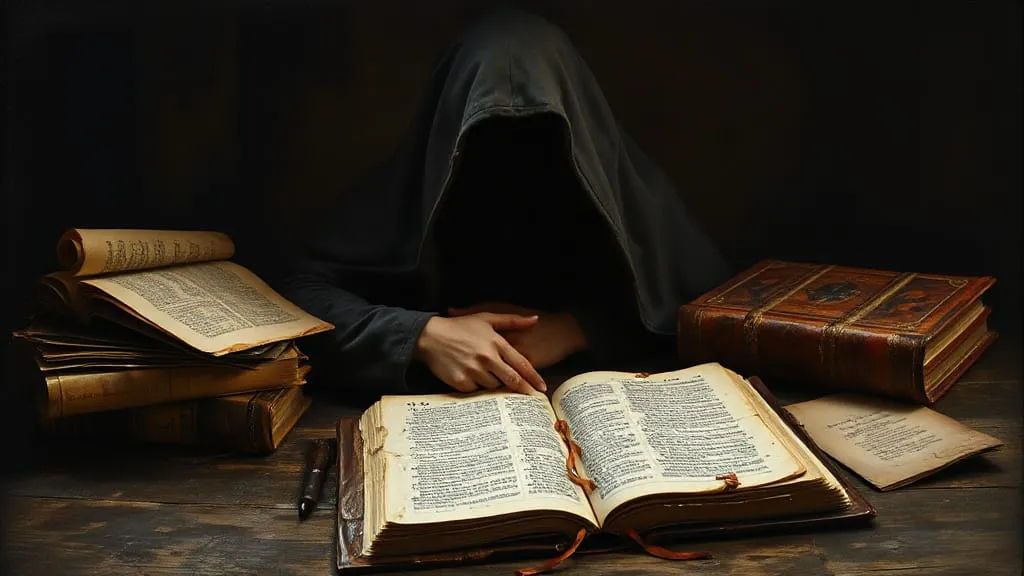Men read the Book of 2 Maccabees and think they have found the ultimate handbook on martyrdom. They get swept up in the religious fervor, the graphic tales of suffering, and the heroic defiance of Eleazar and the seven brothers. They see this as the pinnacle of faith, a glorious testament to be admired and emulated. They are celebrating a spiritual sickness and calling it health.

2 Maccabees is not a story of faith. It is a divine and terrifying exposé of the religious ego in its final, most seductive, and most pathological form. It is a manual on how to die for God without ever knowing Him.
1. The "Martyrs" are Actors in a Religious Play
The centerpieces of the book are the martyrdom stories. These are not portraits of serene spiritual surrender. They are case studies in defiant self-righteousness.
Their speeches are not faith; they are pride. Read what they say. They are filled with arguments, taunts, and detailed descriptions of the rewards they will receive and the punishments their torturers will face. They are keeping score. This is the ego meticulously calculating its future vindication. It is a performance for an audience, the torturers, the readers, and a God they have shaped in their own image, a God who is impressed by their endurance.
This is not turning the other cheek. To turn the other cheek is to not be angry. These martyrs are consumed by righteous indignation. Their defiance is fueled by a white-hot passion. This is not the quiet peace of the Spirit that has overcome the world. This is the ego meeting the world's violence with its own spiritual violence, convinced of its own superiority.
True martyrdom is the silent death of the ego. Jesus on the cross said, "Father, forgive them, for they do not know what they are doing." He did not list the torments that awaited his executioners. He did not boast of his imminent resurrection. The Maccabean martyrs do the opposite. They are fixated on their own suffering and their own reward. They are dying as the heroes of their own story, which is the ego's ultimate fantasy.
2. The Prayers for the Dead are the Birth of Religious Magic
After a battle, Judah discovers that his fallen soldiers were wearing idolatrous amulets. What does he do? He takes up a collection and sends it to Jerusalem to make a "sin offering" for them.
The religious mind reads this and sees a beautiful act of piety. The spiritual man sees the birth of a monstrous lie: the idea that you can use religious ritual and money to fix a man's spiritual state after he is dead.
This is the ego's ultimate workaround. It denies the terrifying finality of a life lived in rebellion. It creates a religious technology, a spiritual insurance policy that suggests your inner state doesn't really matter, because a priest can perform a ritual to clean up the mess later. It is a direct assault on the absolute urgency of dying to your own ego now, in this life, which is the only chance you have.
3. The Holy War is a Carnal Endeavor
Like 1 Maccabees, this book glorifies a carnal war fought for a religious cause. But here, it is decorated with divine visions and heavenly horsemen. The religious ego loves this. It wants a sign. It wants proof that God is on its side of the battle, that He endorses its violence.
But the visions do not sanctify the means. The fundamental error remains: they are fighting a war of the flesh, with anger, swords, and military strategy, to defend a religion of the flesh. They are trusting in their own righteous fury, propped up by visions, rather than in the silent, non-reactive power of the Spirit.
2 Maccabees is one of the most dangerous books a man can read without spiritual eyes. It presents the ego's most pious and self-sacrificing form and calls it holiness. It teaches you to love your own suffering, to catalog your own righteousness, and to die a defiant, angry death for a God you have turned into a cosmic scorekeeper. It is the final masterpiece of the "letter that kills."